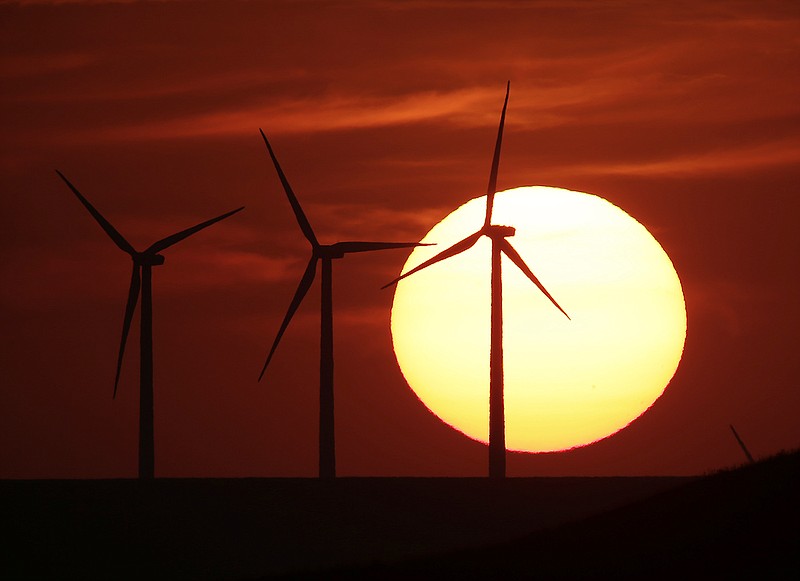Missouri regulators have again rejected the state's portion of a power line that would carry wind energy from Kansas to Indiana, citing the company's failure to provide the required 60-day notice before submitting its latest application.
Immediately after the Missouri Public Service Commission announced its decision Tuesday, Houston-based Clear Line Energy Partners pledged to try a third time to win permission to build the Grain Belt Express line across northern Missouri.
"Our order today is in no way to be perceived by anyone as the commission's view on the ultimate merits of the case," Commission Chairman Daniel Hall said Tuesday. "It's a merely procedural formality that unfortunately was not complied with."
The Missouri portion would represent about 200 miles of the 780-mile, $2.3 billion power line stretching from Dodge City, Kansas, to a substation in Sullivan, Indiana. Regulators in Kansas, Illinois and Indiana have already approved the project.
The commission rejected the original application last year after landowners along the line's proposed Missouri route raised objections. At the time, commissioners questioned whether the project would benefit Missouri, if it was needed and whether it is economically feasible. Since then, Gov. Jay Nixon has said he supports the project and the Missouri Joint Municipal Electric Utility Commission, which represents 67 municipal utilities that buy power together, announced it had agreed to buy up to 200 megawatts of transmission space if the power line is built.
Clean Line agreed after negotiating with Nixon to accept the option of binding arbitration to resolve compensation disputes and avoiding damage to farmland, to update land value assessments, pay the higher amount if land values decrease, and to not reduce promised compensation if the project is approved.
Leaders of the opposition group, Block Grain Belt Express, said in a news release they reject those changes and remain strongly against the project.
"None of the affected landowners or other stakeholders were given any opportunity to participate in the governor's landowner negotiations with the company," said Wiley Hibbard, presiding commissioner of Ralls County.
"These so called protections are nothing more than smoke and mirrors. They do not protect us."

